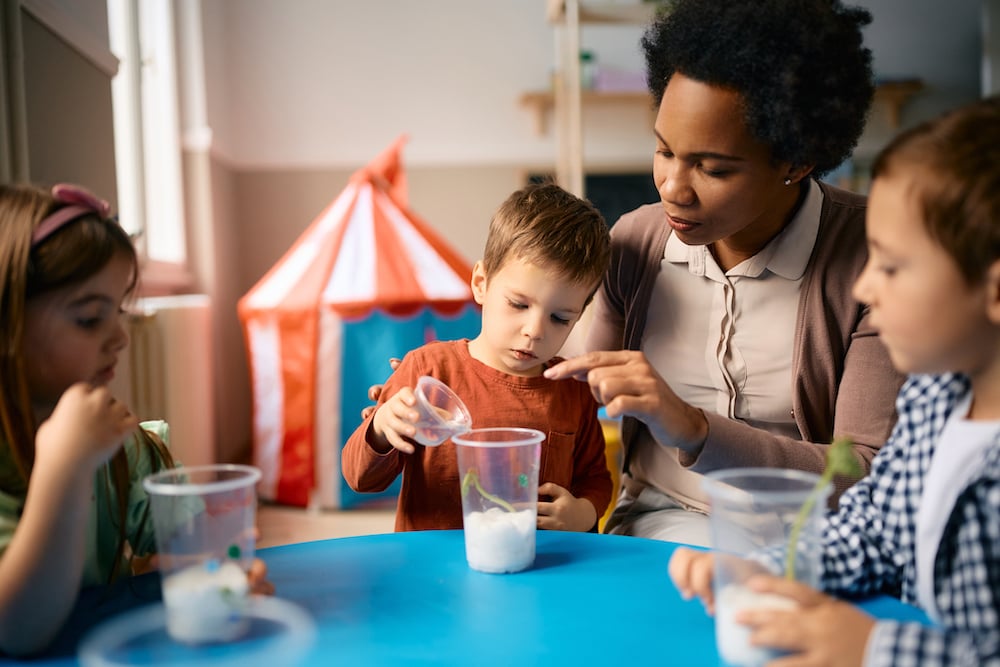Kids are naturally curious, and science experiments are a useful way to foster this trait in children as young as preschoolers—and that’s just one of their many benefits.
As FirstDiscoverers.co.uk notes, conducting developmentally appropriate science experiments with youngsters can build a lifelong love of science in them. Research has indicated that, by the age of seven, children will either have developed a positive or negative attitude towards an education in science. So, by allowing them to enjoy experimenting as preschoolers, positive feelings towards the endeavor can remain with them.
Even simple and fun scientific activities can assist children in understanding basic concepts that will help them in school—and perhaps beyond as they choose a career. Science experiments can help to teach children a specific lesson; going beyond that, it can also assist them in developing scientific ways of thinking, which contributes to their overall critical thinking abilities.
Choosing the Right Types of Science Experiments
But, besides asking yourself, “Why are science experiments important for preschoolers?”, it’s important to discover what specific activities are developmentally appropriate for preschoolers. If they’re too advanced, your child may quickly lose interest or not get good takeaways from the experience.
Parents.com shares nine activities, and here are just two of them.
Age Groups Served
First, create a bowl of magic ink! Its secret ingredients are as follows: the juice of one lemon and a spoonful of water. Then, give your child a paintbrush or cotton swab. They can dip into the lemon juice-water and write or paint on a piece of paper. Then, once the ink dries, you can hold the paper up into the sunlight or next to a lamp and watch something magical happen! When heated up, lemon juice turns brown from oxidation, allowing everyone to see what was created with the invisible ink.
Making Music
Take a handful of glasses and fill them with differing amounts of water. Then, give your child a spoon to tap each one to hear the different sounds made by them. Fuller glasses will create deeper sounds while ones with less water will make higher sounds. Your child may soon be creating catchy riffs!
Explore Horizon Education Centers: Preschool Program
At Horizon Education Centers, we put science experiments into action—like we did when creating slime as part of our STEM curriculum at our Triskett Station location. Students practiced math skills as they measured ingredients and used keen observation skills as the pumpkin slime took shape. Afterwards, we chatted about what slime is, how and why it sticks to things, and more.
Hands-on experiences like these allow children to enjoy learning. With slime and plenty of other science experiments, they also learn patience and practice delayed gratification before seeing the amazing results of their hard work! (To find a recipe for slime, look in the Parents.com article found above.)
Learn more about Horizon’s preschool program.







